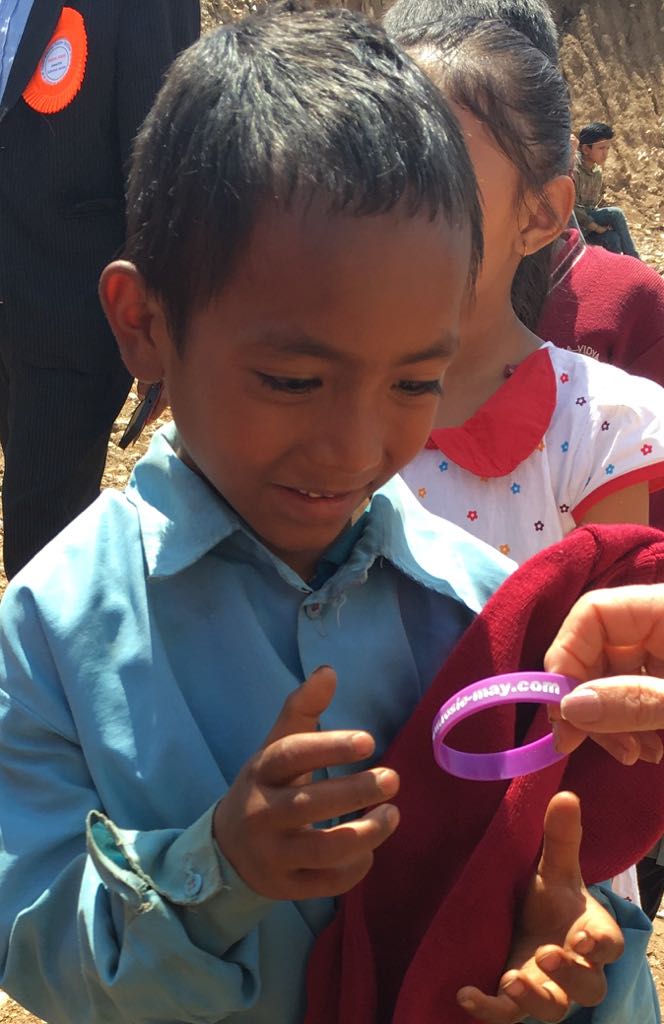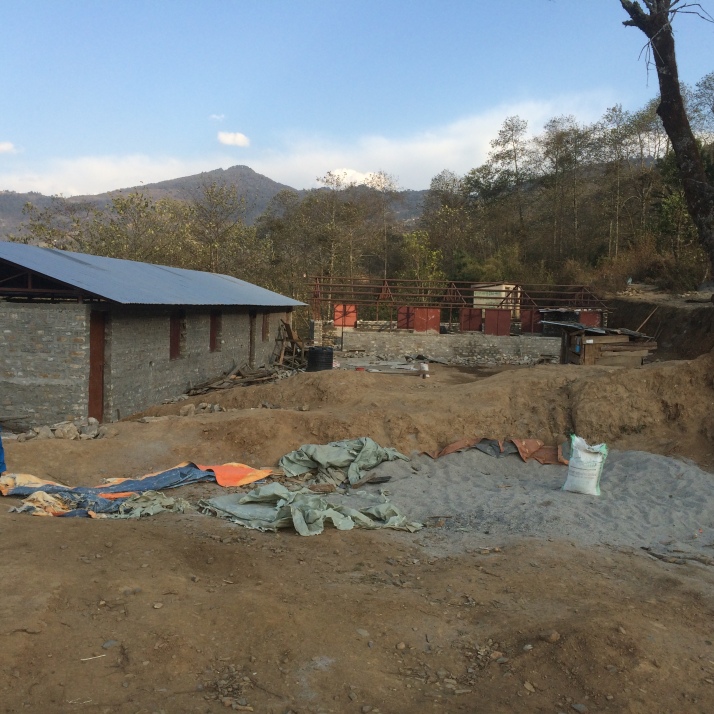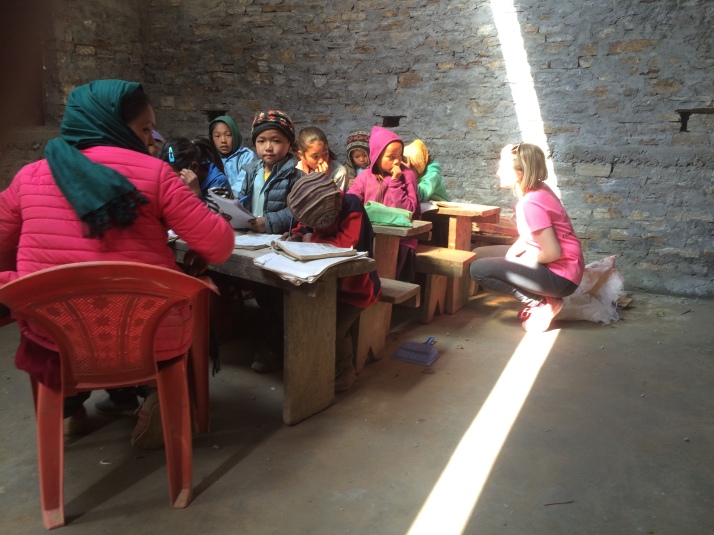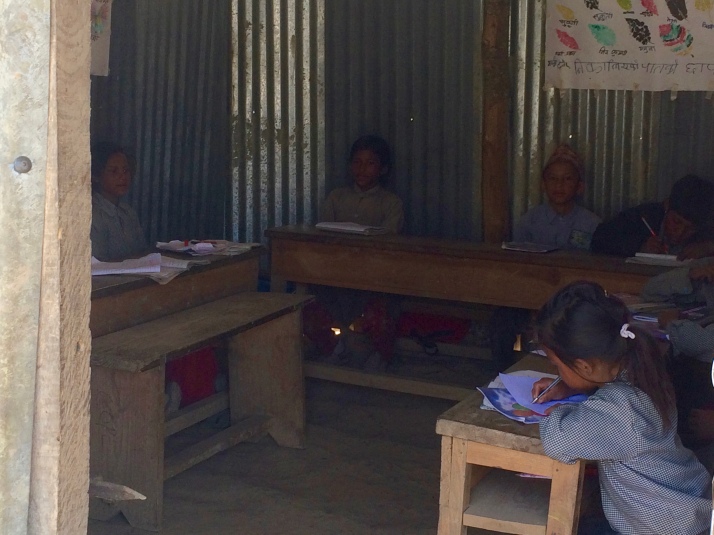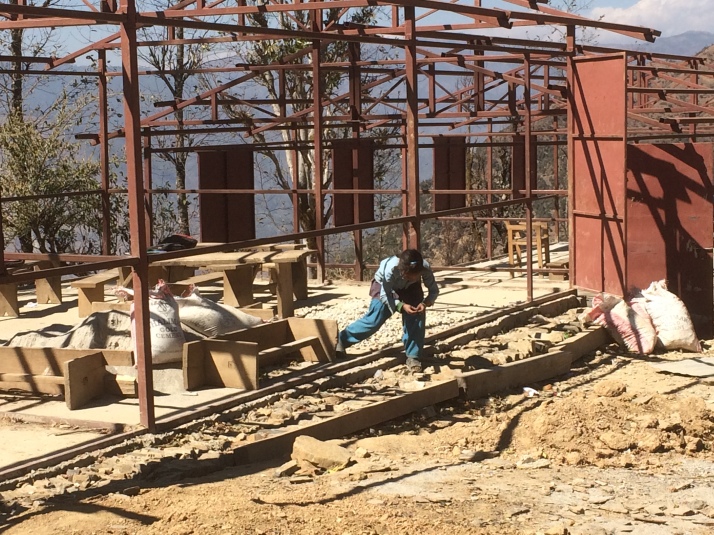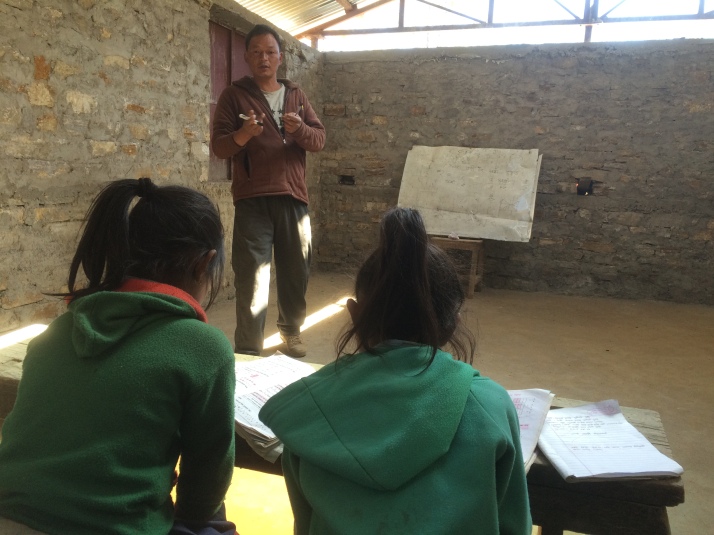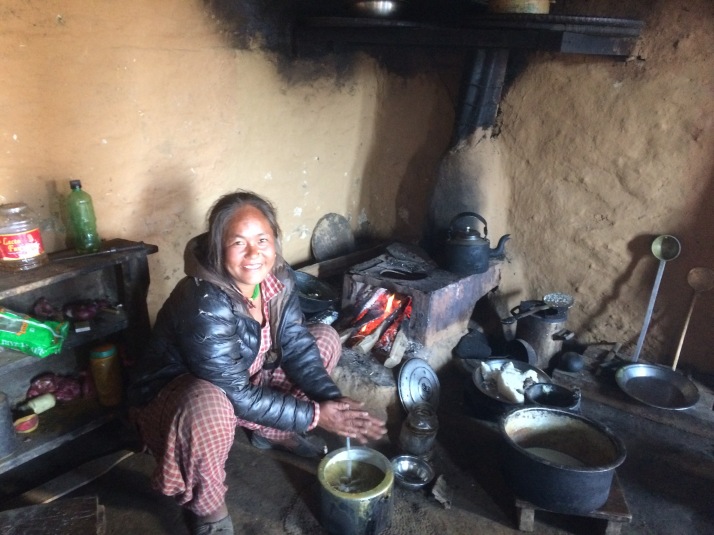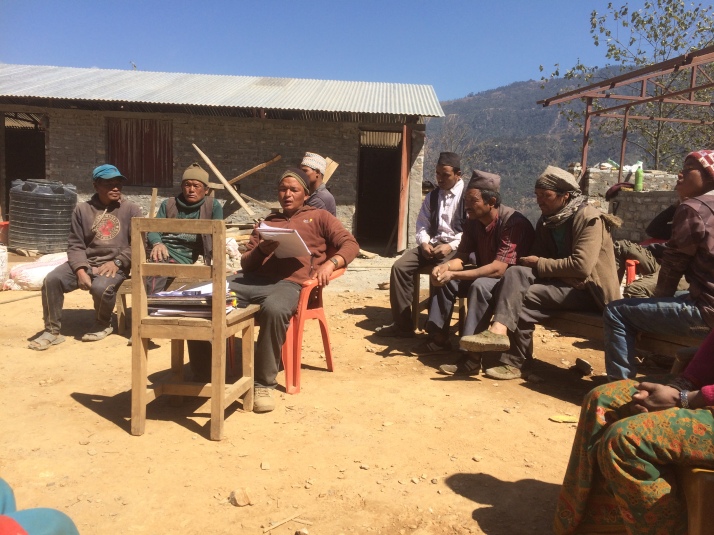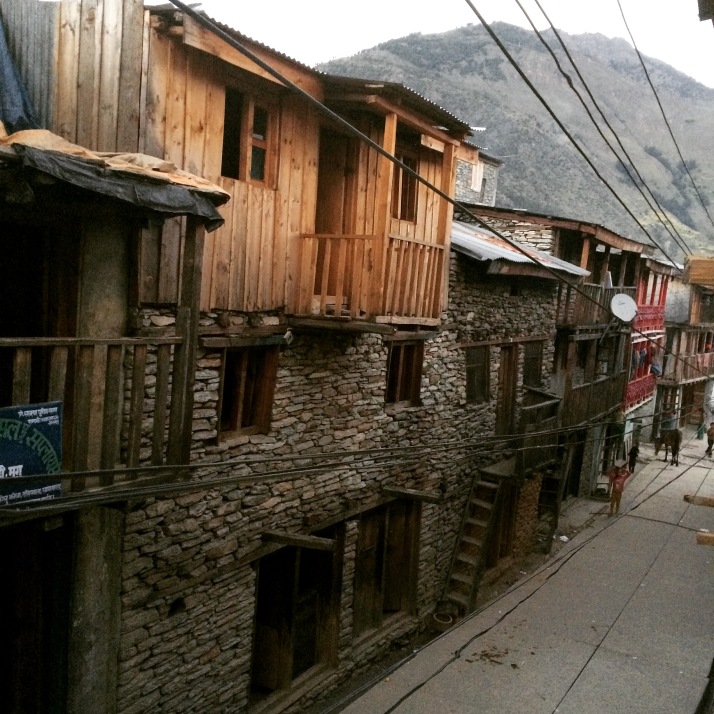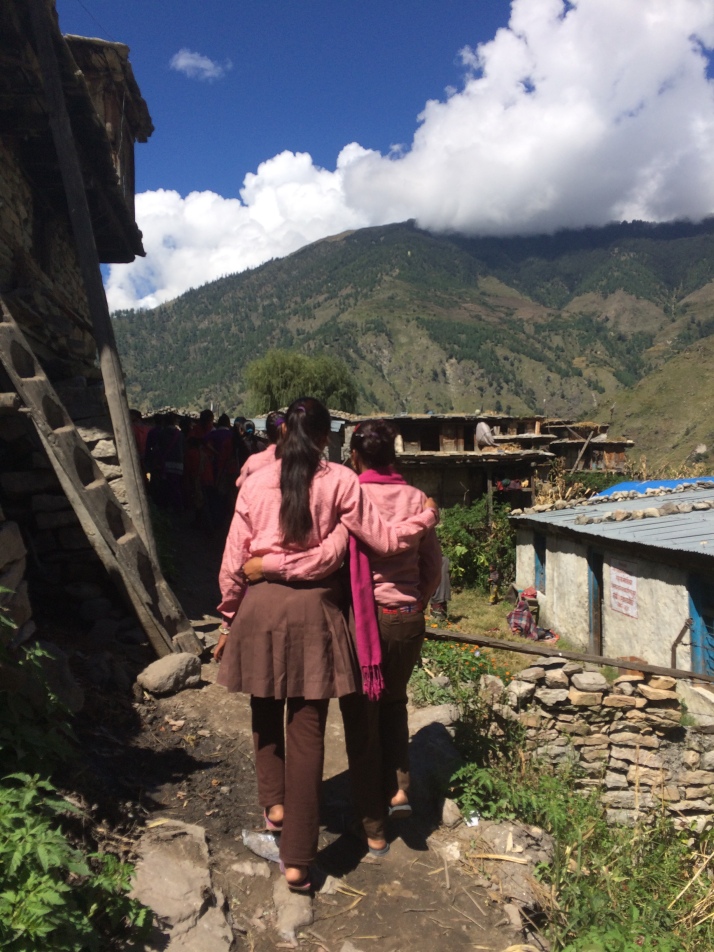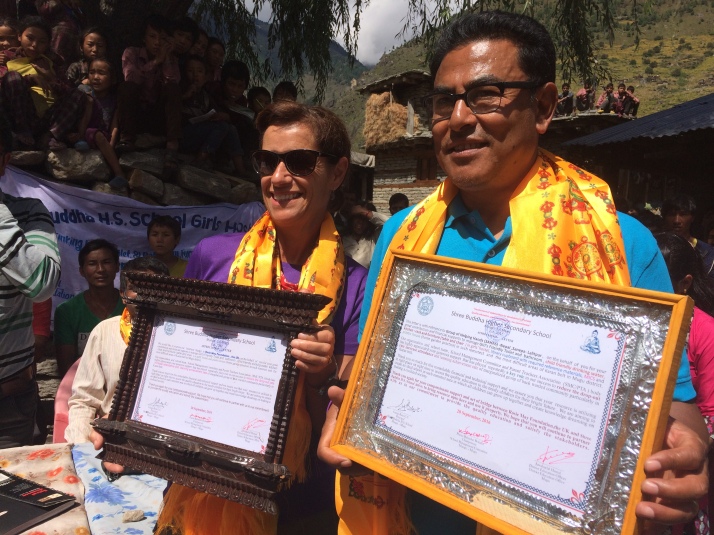A trip to Meselme school is not easy. It involves 80km of trekking up to 3,300m over four days, and over 26 hours of off road driving. Despite the slightly daunting travel schedule, a team from the Rosie May Foundation including both founders, Mary and Graham, along with trustees from the Australian side of RMF joined SAHAS Nepal Executive Director as well as two members of the management team to trek to Meselme School.
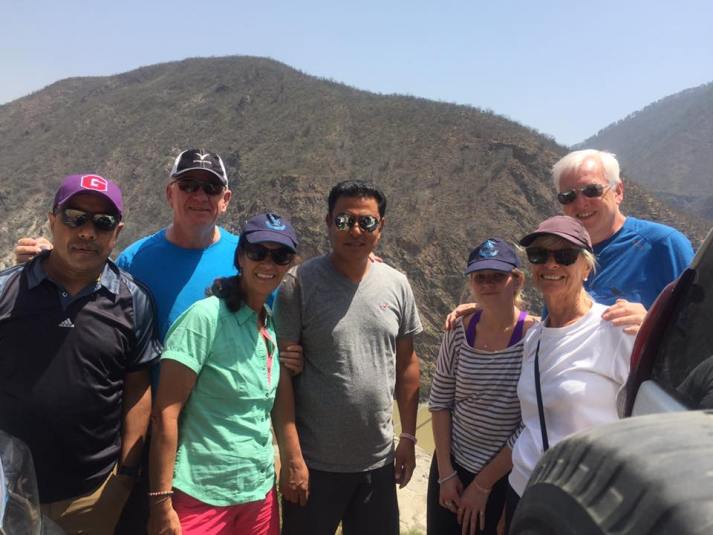
The team on the way to Okhaldhunga district – before the walking began!
The trek was not easy, but a perfect time to reflect on life in rural Nepal for children who spend hours walking to school, walking to collect water, and growing up in conditions we could never understand in the UK. It’s also an important time to make you close as a team, and inspire you to keep working to support those in under privileged circumstances.
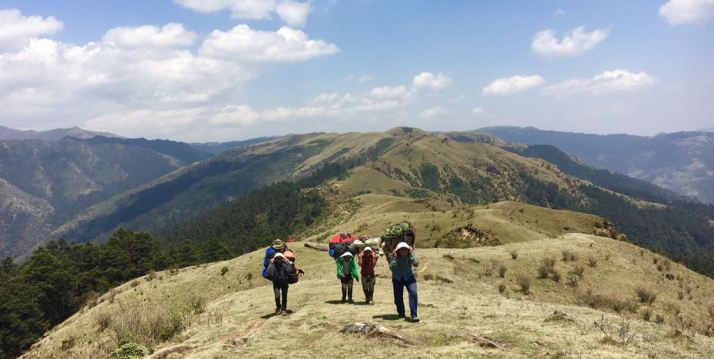
Our incredible porters – who are parents at Meselme School!
The school follows official government and UNICEF guidelines about earthquake resilience, with four classrooms and a staffroom. As well as this, we have provided solar powered showers to make sure that the children have a safe place to wash, and can even find warm water during winter to keep clean. As well as this, gender sensitive bathrooms are an important way to encourage girls to keep coming to school. Having a separate bathroom means they feel safe to come to school throughout the month, even during menstruation. Again, the showers act as an important facility in terms of gender equality in education, ensuring girls remain in school and feel clean and comfortable.
After travelling for two days, we reached Meselme and stayed in the house of the headteacher, who welcomed us with a meal of Daal Baat (rice and potato curry with spinach).
The next day was the official opening of Meselme School. Everyone was excited, and probably nervous as, after two years of hard work, the school was finished and ready to be handed over to the community.
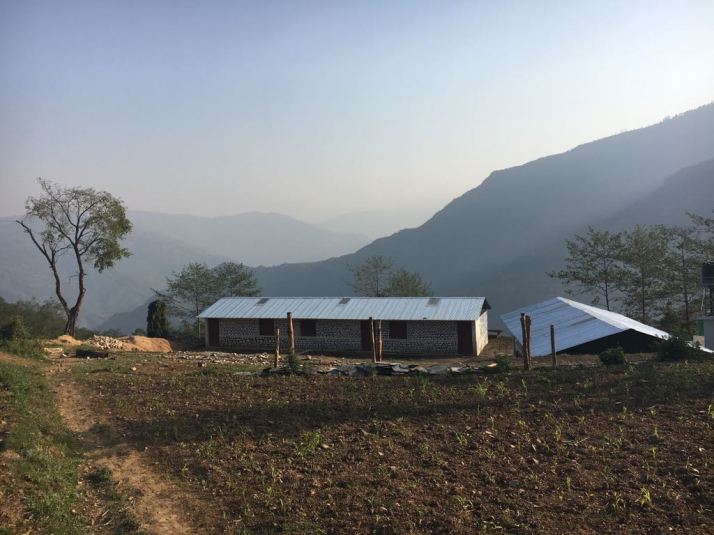
Reaching Meselme School after a very long day of walking!
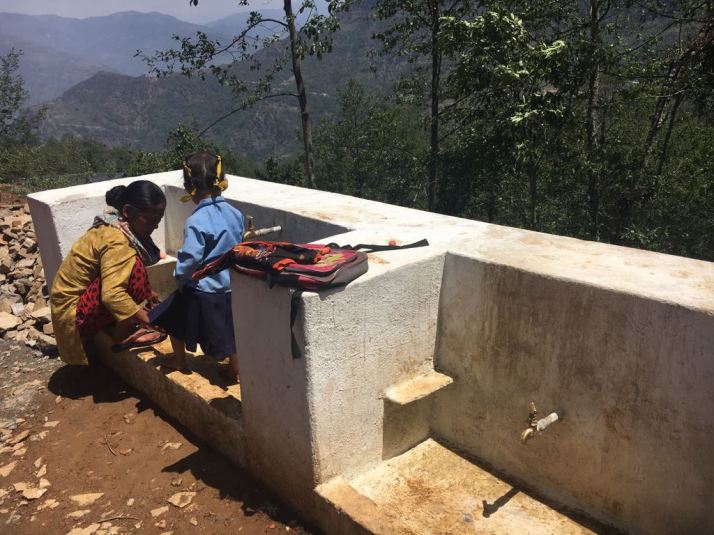
Community members using the new water facilities
After speeches from the headteacher and local officials, Mary Storrie, Director of RMF, said a big thank you to everyone involved in the creation of the school; the school committee, our partner SAHAS Nepal and Wangda Sherpa, who introduced us to the project. She talked about how the future of the school is in the hands of the community. The teachers, parents and children all have a role in using the facilities and making sure their school remains one they can be proud of.
It’s hard to imagine life in rural Nepal; a lack of electricity is just one barrier from children receiving a quality education. To challenge this, RMF are working with Solmates to provide solar lights to the children of Meselme, and other rural villages. Don, trustee who works for the Australian branch of RMF has been working tirelessly all year to provide over 300 solar lights in Nepal, and gave the students and their parents a lesson in how the solar lights work, and they listened intently, obviously happy to receive such a basic, but life changing gift.
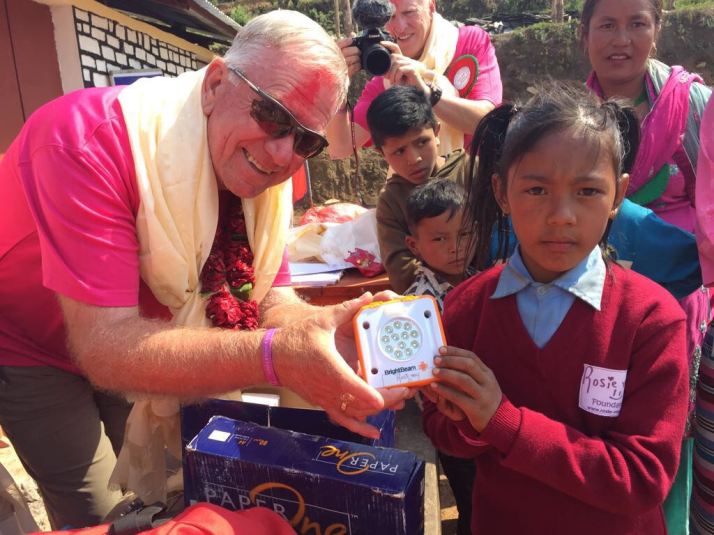
Don, from RMF Australia, handing out lights
But the Rosie May Foundation’s involvement won’t stop there. After providing hot showers, solar lights and school uniforms, we will also be providing school meals as an added incentive to make sure that parents are sending their children to school. Shockingly, 39% of children in Nepal are malnourished and 42% are stunted. Providing a nutritious meal can make an enormous difference to the lives of children’s future, let alone their ability to concentrate in school! Often simply providing one meal can ensure that poor families know their children receive nutritious food at least once a day, and can take a lot of weight off of them. At all projects, we commit to take a long term interest and Meselme is no different! We will be supporting the school for the next few years, through school meals and capacity building of local teachers.
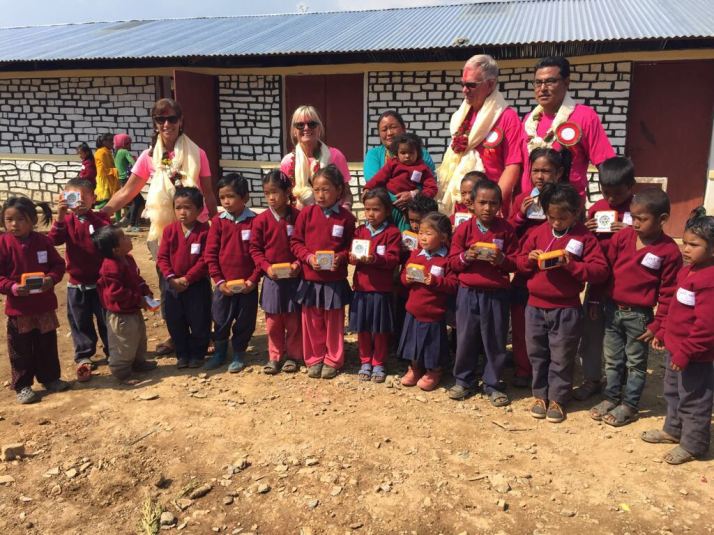
The journey to Meselme was definitely tough and one that wont be forgotten! But what makes it worth it is the way that this schools acts as an example of resilience after the earthquake, but also what the Rosie May Foundation always champions: the importance of education in even the most difficult circumstances. The children of Meselme have a school to be proud, with school uniforms, lunches and even lights. The school empowers the community as a whole, and acts as an important reminder that even in rural Nepal, these children deserve, and now have access to facilities that allow them to thrive and support themselves and their families in the future.
If you are interested in sponsoring a child in Meselme, and providing school meals, email mary@rosiemay.com for more details.
